Tag Question is the grammatical structure in which a simple(declarative or imperative) statement is changed into a question by adding an interrogative fragment at the end of statement. For example, in the sentence, “You are good, aren’t you?”, the statement “You are good” is changed into a question by the addition of “Aren’t you?”.
A tag question is a special construction in English. It is a statement followed by a mini-question. Tag questions are very common in English. They re used to make a simple statement into a question statement. We use tag questions to ask for confirmation.
Rules of Question Tags
- If we are making a positive statement, then a negative question tag will be used.
- If we are making a negative statement, then a positive question tag will be used.
- After “let’s”, the tag begins with “shall”.
- Use “aren’t I” in tags to mean “I am not”
- Use “won’t” for polite request tags.
- Use “will” or “would” with imperative sentences (commands).
- Use “mustn’t” with the modal “must”.
- Two endings are possible when “have” is the main verb of the sentence.
- Use pronouns for people, not proper names, in question tags.
- Use “it” in a question tag when the sentence includes the words “this” or “that”.
- Use “they” in a question tag when the sentence includes “these” or “those”.
- Use “didn’t” in a question tag when the sentence includes the verb “used to”.
- Use “they” in a question tag when the sentence includes indefinite pronouns
(nobody, no one, someone, somebody, everyone, everybody). - Use “there” in a question tag when the sentences includes “there + a form of be”
Example Sentences
Download PDF at the Bottom of Page
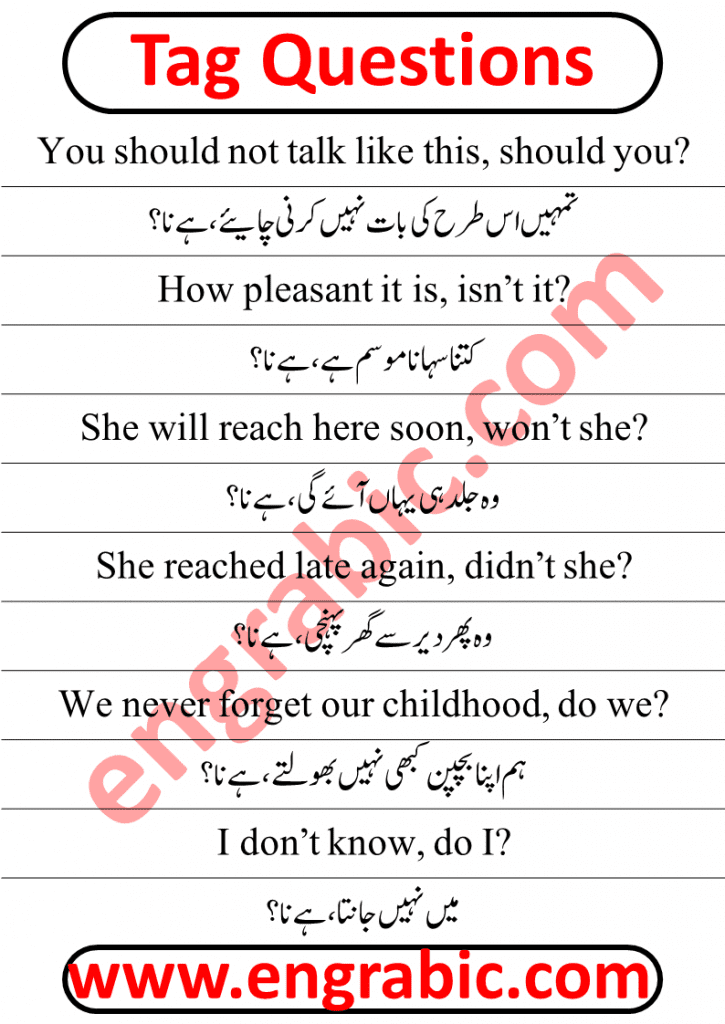

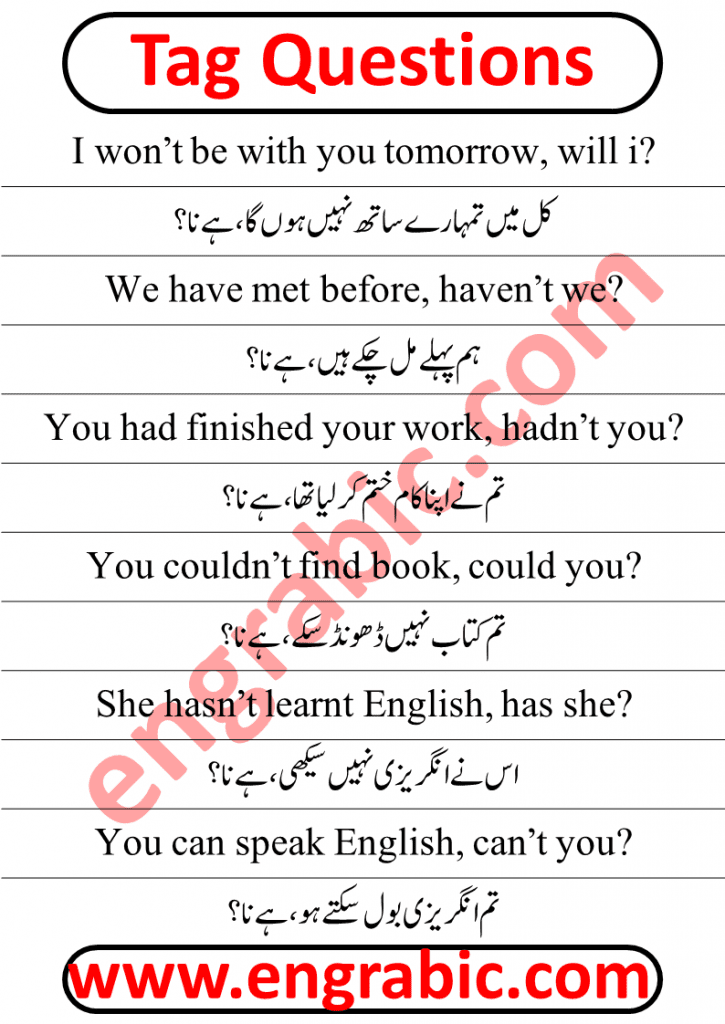

Download PDF at the Bottom of Page
| It is very hot today, isn’t it? | آج بڑی گرمی ہے،ہے نا؟ |
| They are foreigners, aren’t they? | وہ غیر ملکی ہیں،ہے نا؟ |
| You were not pleases, were you? | تم خوش نہیں تھے ہے نا؟ |
| It will be Sunday tomorrow, won’t it? | کل اتوار ہو گا، ہے نا؟ |
| We will be ready soon, wont we? | ہم جلدی تیار ہو جائیں گے، ہے نا؟ |
| I can never forget it, can I? | میں یہ کبھی نہیں بھول سکتا، ہے نا؟ |
| I won’t be with you tomorrow, will i? | کل میں تمہارے ساتھ نہیں ہوں گا، ہے نا؟ |
| We have met before, haven’t we? | ہم پہلے مل چکے ہیں، ہے نا؟ |
| You had finished your work, hadn’t you? | تم نے اپنا کام ختم کر لیا تھا، ہے نا؟ |
| You couldn’t find book, could you? | تم کتاب نہیں ڈھونڈ سکے، ہے نا؟ |
| Meena shouldn’t go to bed late, should she? | مینا کو دیر سے نہیں سونا چایئے، ہے نا؟ |
| She hasn’t learnt English, has she? | اس نے انگریزی نہیں سیکھی، ہے نا؟ |
| You can speak English, can’t you? | تم انگریزی بول سکتے ہو، ہے نا؟ |
| Great men don’t waste their time, do t`hey? | بڑے لوگ وقت برباد نہیں کرتے، ہے نا؟ |
| You should not talk like this, should you? | تمہیں اس طرح کی بات نہیں کرنی چایئے، ہے نا؟ |
| How pleasant it is, isn’t it? | کتنا سہانا موسم ہے، ہے نا؟ |
| You think yourself to be very clever, don’t you? | تم خود کو بہت ہوشیارسمجھتے ہو، ہے نا؟ |
| She will reach here soon, won’t she? | وہ جلد ہی یہاں آئے گی، ہے نا؟ |
| She reached late again, didn’t she? | وہ پھر دیر سے گھر پہنچی، ہے نا؟ |
| We never forget our childhood, do we? | ہم اپنا بچپن کبھی نہیں بھولتے، ہے نا؟ |
| I don’t know, do I? | میں نہیں جانتا، ہے نا؟ |
| I don’t ask anything do I? | میں کچھ نہیں پوچھتا، ہے نا؟ |
| She doesn’t come here, does she? | وہ یہاں نہیں آتی، ہے نا؟ |
| We haven’t hear this news, have we? | ہم نے یہ خبر نہیں سنی، ہے نا؟ |
| Its not cold today, is it? | آج سردی نہیں ہے، ہے نا؟ |
| She isn’t married, is she? | وہ شادی شدہ نہیں ہے، ہے نا؟ |
| We are not late today, are we? | ہم آج تاخیر سے نہیں ہیں، ہے نا؟ |
| She wasn’t in Karachi, was she? | وہ کراچی میں نہیں تھی، ہے نا؟ |
| We didn’t attend the lecture, did we? | ہم لیکچر میں حاضر نہیں تھے، ہے نا؟ |
| She doesn’t have a son, does she? | اس کے لڑکا نہیں ہے، ہے نا؟ |
| I didn’t get the letter, did I? | مجھے خط نہیں ملا، ہے نا؟ |
| I can’t ride a motorcycle, can I? | میں بائیک نہیں چلا سکتا، ہے نا؟ |
| We shall not be late tomorrow, shall we? | ہم کل دیرسے نہیں ہوں گے، ہے نا؟ |
| You needn’t go there, do you? | آپ کو وہاں جانے کی ضرورت نہیں، ہے نا؟ |
| Father won’t be angry, will he? | والد صاحب ناراض نہیں ہوں گے، ہے نا؟ |
Download PDF at the Bottom of Page
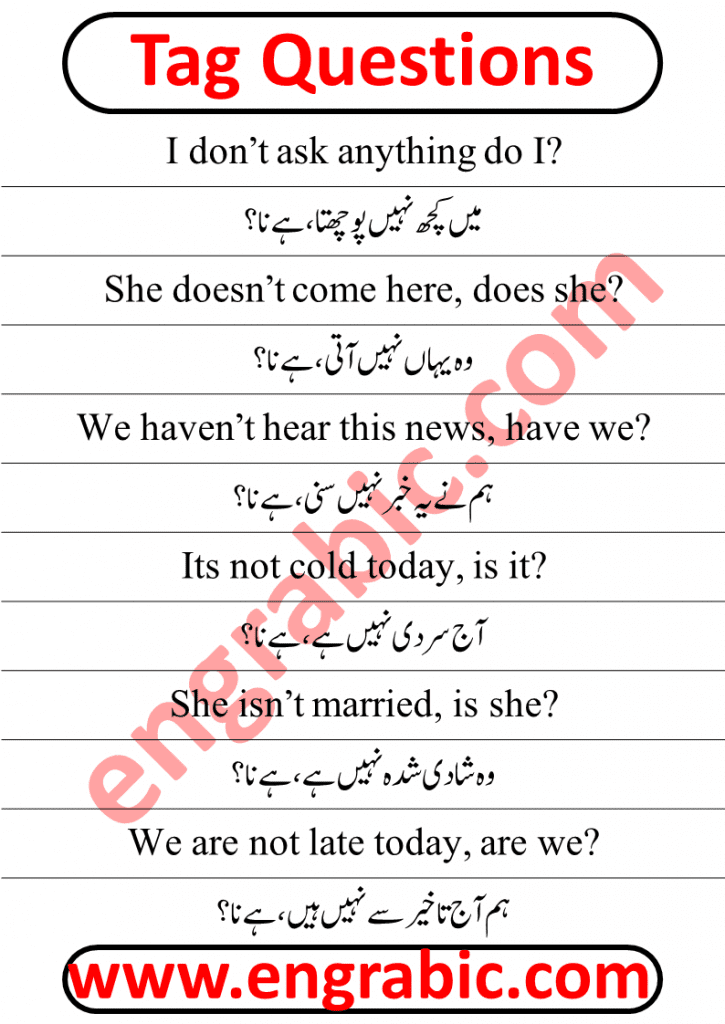

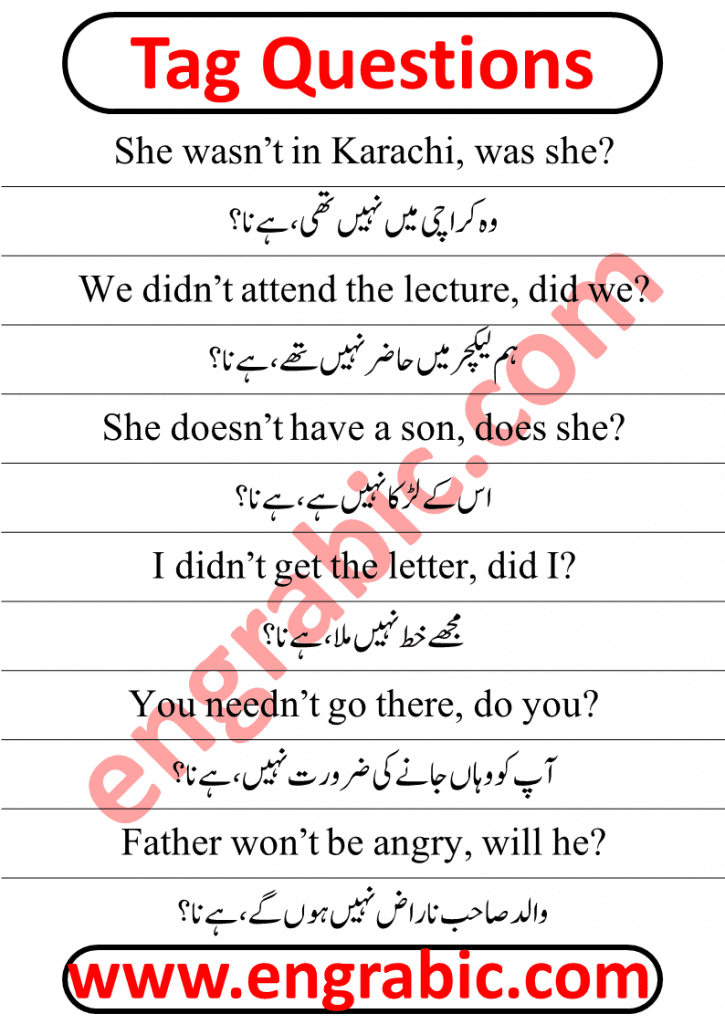

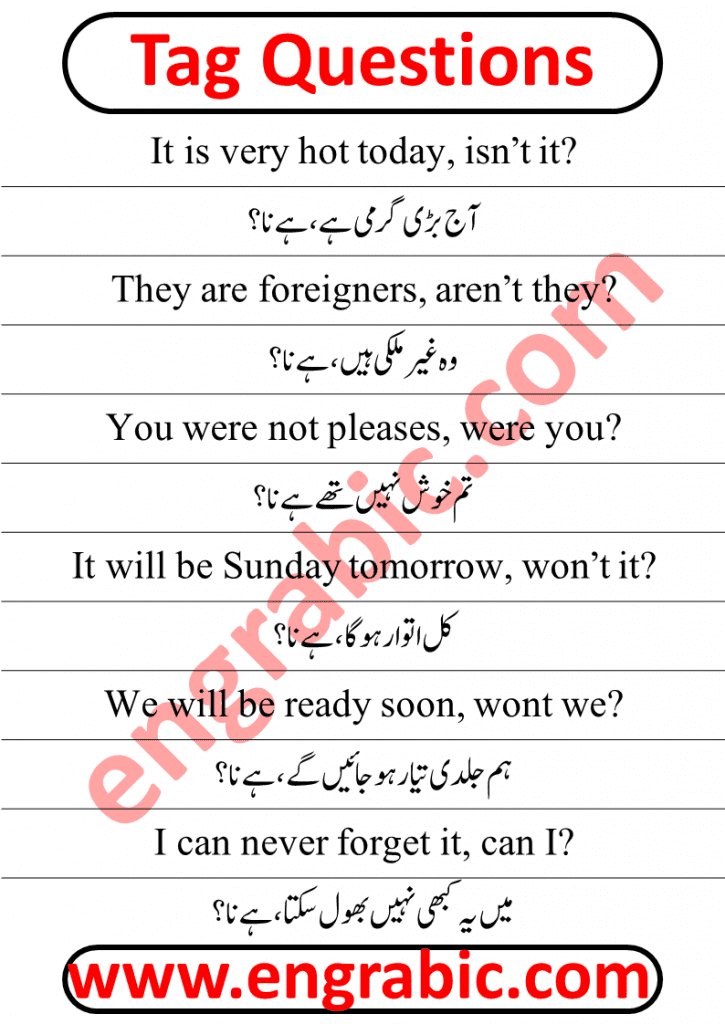

Download PDF
You May Also Like to Visit

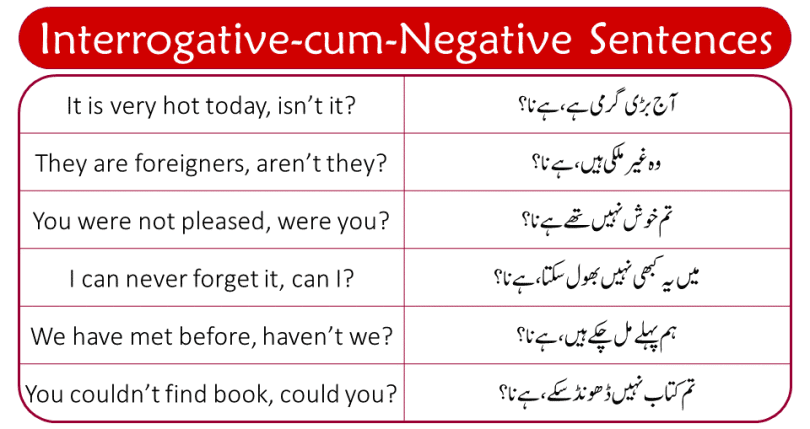
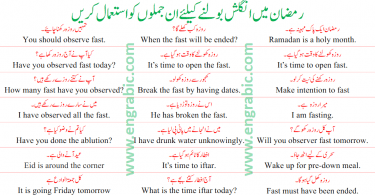
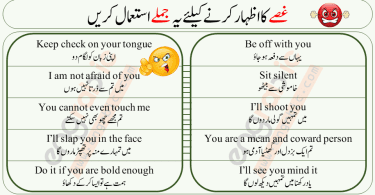
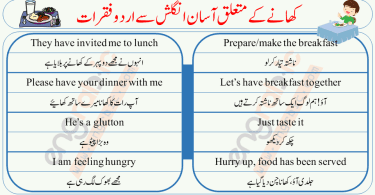
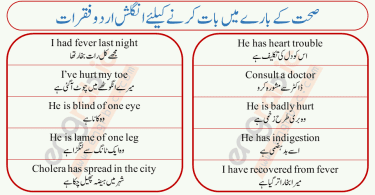
Leave a Comment